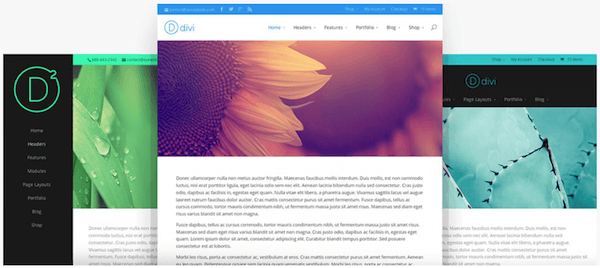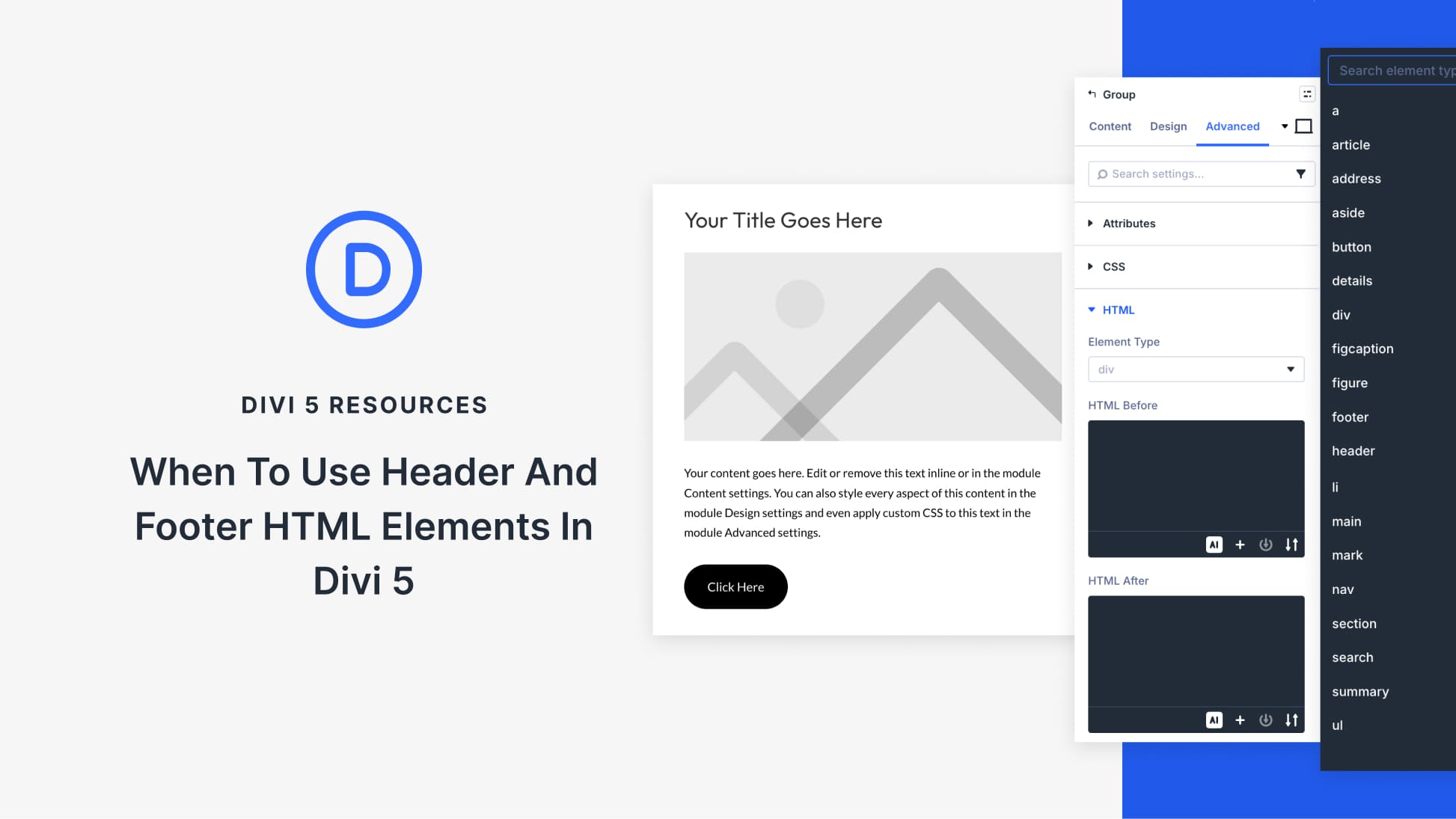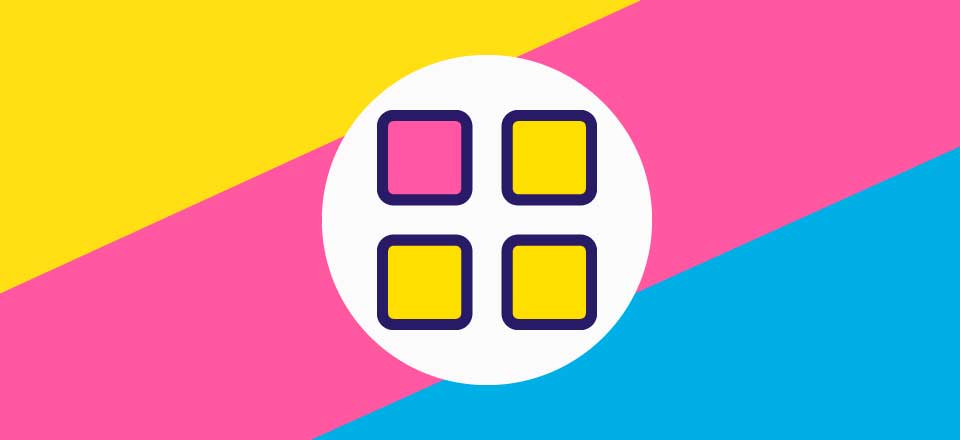As a writer, delving into the hotly contested debate that pits designers against developers is akin to jumping into shark infested waters.
While I’m in no way suggesting that designers or developers are unfriendly or inclined to bite (surely not!), there seems to be a long-standing debate as to which is more important to the overall well-being of the web, within which both parties are capable of presenting a pretty solid argument.
But I’m going to throw a curve ball and present an argument that suggests neither one is more important than the other. In fact, from the perspective of your clients, what you call yourself doesn’t matter. To them – despite the differences that are clear to you and me – being a designer or developer means the exact same thing.
So instead of debating the qualifications most appropriate to design and development, it might be more important to focus on meeting the needs of clients and growing your business. In this post we’re going to look at the part the two different roles play, and how you can adapt to better suit the needs of your clients.
The Changing Landscape of Web Design and Development
Before I get too far down this rabbit hole, let’s discuss who this post is geared towards. If you’re running a small web design/development company or if you’re a freelancer who deals directly with small to medium sized enterprises (SMEs), this post is for you.
Alternatively, if you’re a designer or developer working in a larger organization, you may find less value here for the simple reason that roles are typically more entrenched. Having said that, you’re more than welcome to read on!
Traditional Definitions Are Becoming Less Relevant
There is no debating the fact the web design and development for the SME space has become incredibly competitive. Clients have a choice of everything from rudimentary do-it-yourself WYSIWYG themes to powerhouse offerings like Elegant Themes.

Obviously, we’d suggest Elegant Themes 😉
Web design and development is quickly becoming an area where your long-term success is determined by your ability to provide ongoing value and ROI. Your client’s expectations will be high, regardless of your official title, and you’ll be expected to resemble a jack-of-all-trades, like it or not.
This is no time to get caught up in semantics. Debating the qualification requirements to use a specific job title serves little purpose other than stroking egos. It’s not unlike the debate between the term “journalist” versus “blogger”. Let someone else debate it while you reel in your next client.
You might be wondering: What exactly are these definitions that cause so much confusion? Although the line that separates developers from designers is becoming increasingly blurred, it’s not a bad idea to develop a basic understanding of the different roles.
Web Developers
Web developers can typically be divided into two categories:
Front end developers are individuals who primarily deal with those aspects of a website that involve interaction with the end user. As a general rule, the larger the client (or employer), the more segregated their position becomes. A front end developer’s skill set typically includes:
- HTML
- CSS
- JavaScript & jQuery
- PHP
Back end developers are the other category you’ll hear about from time to time. Certainly not as well known from an end user perspective, they are a critical component when looking at the big picture. Back end developers are responsible for making sure that everything on the web is accessible, organized and functioning smoothly via a network of servers, applications and databases. Their skill set might include:
- Setting up servers
- Managing hosting environments
- SQL, database design & management
- PHP, Ruby & Python
Web Designers
A traditional web designer working for a large design firm or a company with an in-house team may find themselves focusing strictly on the design aspects of a website. This will also include prototypes, wireframes and workflows.
Specific skill requirements are going to include:
- Photoshop
- Fireworks
- Illustrator
In a team environment, designers may not be required to use HTML or CSS. Those tasks are handed off to a development team. It’s a very different scenario compared to working directly with a client as a freelancer or part of a small web design studio.
Why You Need to Adapt and Change
Before we even start discussing this issue from your client’s perspective, we need to consider how using these definitions can affect you and your business. There is no rule written anywhere that says you must choose to be either a developer or designer (not that I’m aware of anyways).
Labeling Yourself Puts Limits on What You Can Do
Here is potentially the most important part of this whole argument: as a designer or developer, there can be times when it’s useful to define exactly what we do. But don’t get hung up on those definitions or allow ego to become involved.
You might be thinking to yourself that this person or that person can’t call themselves a developer because they’re lacking a specific skill. But it doesn’t matter. Why? Because your clients don’t care! Seriously. To them, the term web designer and web developer mean the exact same thing.
At the end of the day, as a group, we’re all just making things for the web (writers included, right?). None of us can function properly without the other.
And if you’re still hung up on labeling yourself, it gets worse. If you tell the owner of a typical SME that you’re a front end developer, you’ll likely miss out on the opportunity to win their business. They’re not looking for a front end developer because they have no idea what one is.
Some people might throw out the right brain, left brain argument – the one that says good developers are not capable of being designers and vice versa. But that’s not true. Look, maybe I’m not great at running long distances. Sprinting might be my thing. But do you think I would see considerable improvement if I spent the next 12 months practicing my long-distance running? You bet I would! I’m not saying I stand a chance of becoming the next Roger Bannister, but I guarantee I’d be better.
If you typically consider yourself to be a designer, spend a year learning to code. You’d be amazed at your improvement after 12 months.
Maybe you’re bound and determined to work specifically in just the design or development realm, and that’s fine. But from my perspective, there seems to be a trend right now where both designers and developers are looking to expand their skill set. Becoming a true expert in your field requires a commitment to continual learning. Over the next few years I suspect that skill diversity will become increasingly critical.
Meeting Your Clients’ Needs Should Be Your Priority
Most of the time, your clients will come to you with a problem:
- They need a website for their new business.
- They need a redesign of an existing website.
- Their website isn’t mobile responsive.
- They’re not getting the desired results from their website.
- They need to incorporate new functionality such as e-commerce.
The only thing that really matters to clients is your ability to solve their problem. Whether you call yourself a developer or designer is of no significance. Now, I completely understand if your business model dictates that you are specific in the services you offer. But if your objective is to develop long-term relationships, one of the best ways to do that is by adding value and scope to the services you provide.
Small and medium size businesses rarely have the budget required to hire people who specialize in only one or two tasks. They need a freelancer or company who will cover all the bases – development, design and more.
How to Adapt and Meet Your Clients Needs
Making sure you are meeting your clients’ needs requires three simple steps:
1. Define Your Typical Client
Creating a clear definition of your ideal client is the first step of the process. The more you know about them the better you’ll be able to serve them. Also understand that often, there is a correlation between the size of a client and the terminology they use.
A company large enough to support a website development team probably knows the exact qualifications required for hiring a back end developer. Smaller companies are often less sophisticated having absolutely no idea of the difference between a Coleman lamp and a LAMP Stack.
2. Understand Their Needs
Most of the time, your clients will have no idea what they really need. Part of your discovery process is to learn what they actually need. Design and development are likely just the starting point. Don’t rely on your clients’ definitions of those terms either, as they may not know the difference. By determining their objectives you’ll be able to figure out what skill set is needed to get the job done. It wouldn’t be unusual for a small business client to hire a freelance web designer expecting them to be capable of the following:
- website design,
- WordPress development,
- logo design,
- SEO, and
- website content.
If you’re adept at avoiding scope creep, you have all these areas covered in your contract. If not, prepare yourself. Before you even get started on a project, make sure your client understands the different roles involved and what you can and can’t help them with. More often than not, smaller clients are working with a limited budget and they rely on you, regardless of your official role, to advise them and act in their best interests.
3. Learn, Hire or Network Your Way to New Skills
It’s easy for me to sit here and preach the importance of removing your preconceived labels and expanding your skills to provide more value. But how exactly do you go about achieving that objective? After all, if you’re already working with clients, time is often a commodity in short supply.
There are three ways you can go about this process:
- Acquire the knowledge yourself. A huge undertaking and certainly more time consuming, but you have to start somewhere. Commit to learning a new skill – if you’re a great front end developer, brush up on your design skills. Conversely, if you’re a rock-star designer, sign up for a course at codeacademy.com. You don’t need to become an expert; just learn enough that you become dangerous (to your competition, not your clients).
- If you don’t have the time or ability to provide the value-added services yourself, you can always hire a contractor or employee to get the job done. It’s still a good idea to develop a working knowledge of the skills so that you can communicate the requirements more effectively to the person doing the actual work.
- Develop a network of other professionals that you trust. When a project comes along that is beyond your capabilities, through referral, you’ll be able to create a seamless experience with fewer hassles.
Summary
Working on the web, as a designer, developer or in any other capacity means you are subject to a rapidly changing environment. Roles, technologies, software and systems can become obsolete in the blink of an eye and we are faced with a choice: adapt or die.
If you’re willing to learn new skills, adapt to changing environments and look for new ways to provide value, there will probably always be a way to earn a living. On the other hand, if you become stuck on the idea that you’re only capable of being a designer or developer, the possibility exists that you will be forced to make a change in the near future.
Do you consider yourself to be a designer, developer, or a hybrid of the two? What skills do you bring to the table for your clients? Let us know in the comments section below!
Image Credit: Ratch/Shutterstock









Can we put the rest the notion of left brain vs right brain thinking? The article you linked to even mentions: “Given the popularity of the idea of ‘right brained’ and ‘left brained’ thinkers, it might surprise you learn learn that this idea is just one of many myths about the brain.”
I agree with most everything else here. A good web designer / developer / professional meets the client where they’re at, figures out what they need, and delivers on it. But let’s not forget a key component: salesmanship. The old cliche “sell the sizzle not the steak” is true. Don’t be a jerk and not deliver what you promise but if the sizzle backs up the steak’s promise, that’s just good salesmanship. I’m still not an awesome salesman but even just learning a few key things has really helped my business grow. Sales is almost as important as the actual work itself. Any freelancer who’s been beaten out a by a big agency has certainly known this to be true but turn it around… what did the other side find lacking in your abilities that they chose the agency instead?
I’ll tell you what, if you’re after bigger clients, they’re not after brochure based websites. That ship has sailed. Custom business logic, e-commerce, sales tools, anything to make someone’s position at a company easier is going to make you more valuable as a web professional, that’s all I can say.
Good point, I updated the article and removed the references that seemed misinformed.
Front end developer / designer. Do image / video / svg / html / css / json
I do a bit of all three. I’ve had to learn because my clients are on a budget. They can’t afford to have a designer, front end developer, and back end developer on their website projects. Using themes like Divi that have good design principles helps me deliver a quality website to my client. Most of the time, they really need someone to organize their content, which falls more into web content developer. Actually, I think this is one of the most important yet most overlooked aspects of web design. Without excellent content that well organized, does the design really matter?
You knocked it up with this; “So instead of debating the qualifications most appropriate to design and development, it might be more important to focus on meeting the needs of clients and growing your business.”
Thank you for this piece.
Cheers!
Timely article! I’ve always been a bit of a hybrid myself, but thanks to Divi and interacting with the Divi community on Facebook, I’ve been able to switch gears a bit and have discovered I really like to develop sites, more so than trying to design something from scratch. So I’ve purposefully been seeking out designers who aren’t as strong or simply would rather hand off site development. It’s like creating a little agency without all the overhead, lol. Works for me, dealing with individuals & small business clients.
Agree, the running of a website has become combination of too many technologies these days , which one person cannot master at all. Still a developer can extend his skills little bit on design like photoshop and extend to some extent on backend like hosting management.
Starting out in my carer, i started as a web developer and at the time, design wasn’t as diverse as now. It wasn’t until 2010 i started concentrating on design. I was able to improve both skills as i taught myself using online tutorials and inspirational works. In 2013 i remember finding myself as a designer and developer with strong skills in responsive and minimal design. Since then i am always trying to improve my work and i have also taken on inbound marketing in order to be able to design and develop search engine optimized websites. In a normal day i get to work on all three roles and stay up to date on new trends and technologies. I believe, in order to make sure you are adapting to fast changing web technologies, you need to have understanding and hands on experience on roles that relate to your’s.
Another great article! I’m a bit of a hybrid, I started out in Dreamweaver and switched last year into WordPress. My clients are small businesses and require me to do all of what’s listed in #2. I expanded into email marketing with Constant Contact years ago and now do a lot of email management (list building, newsletters, etc.) and that has made me invaluable to my clients. I’m in the 3rd redesign on some of them.
The technology changes so rapidly that I’m constantly going through tutorials on lynda.com and the truth is my clients are so busy running their own businesses that they’re glad to hand off and pay me to take care of the website stuff.
I have to say I read almost all of your blog posts and I have learned a ton since joining the Elegant Themes community. Keep up the great work and I am so excited to see the new Divi!!!
All of what you say is true and I’ve learned that when a client asks for “development”, it may just mean “design”. With ten years as an info graphics designer and editor for a large newspaper, I have the qualifications for organizing and designing a website. I know html and css, and get help from the hosting company if I have server issues. But, I could not find a developer who would take on smaller parts of a job. They want to build websites from scratch and get a bigger piece of the pie. Then, I found someone who would work with me on an hourly basis and is reasonably priced. Just wish there were more out there!
Wow! I’ve been doing it all for so long I din’t realize there were different titles:). Very informative post. TY
very informative post. every one should read this article atleast once.thanks for sharing
Great article.
I’ve done just fine with the small website projects I’ve done so far. Because I know what I do not know (does that make sense?), fear has really held me back.
Recently, I met with a peer whose company can handle anything I cannot. I can simply pass off the parts that aren’t in my scope. Knowing that I can partner with someone to get ANYTHING accomplished has proven to be a huge relief and really opened my eyes to the potential of my one-woman agency!
“Why? Because your clients don’t care! Seriously. To them, the term web designer and web developer mean the exact same thing.”
While I generally applaud the substance of the article, I have to take issue with the above quote. Yes, it’s limiting to pigeonhole your skills to one label. But it’s also dangerous to paint all of your clients with too broad a brush.
I have plenty of clients who don’t care how I label myself. I also have clients with a more sophisticated grasp of web and information technologies. They do understand the distinction between developer and designer. In such situations, I find it best to tell the client how my skills match the requirements of the project. I want to be the right resource for the project. Honesty with the client about how my skills match the project go a long way to achieving a successful result.
As a new web freelancer, this debate is killing me. How do you market yourself or position yourself when know one agrees what any of the terms mean? So frustrating.
On top of that, look at the list of skills (and I’ll over-simplify for brevity): know how to draw and know how to code.
Whose job is it to know what goes where? Whose job is it to make sure the clients get actual results beyond giving them a pretty website that does “what the client asked for”? What is that person called?Is digital business consultant a thing?
I think we should all get together, pick a new name, and refuse to answer to anything else. 😉
This is why everyone needs a team for support – regardless of the size of their business. A team can be a group of employees who work for you… or subcontractors, friends or other associates you can turn to for advice when needed. Even Solopreneurs can’t be 100% do it yourselfers any longer.
Take Elegant Themes for example. When you use a Theme from Elegant Themes, they (in effect) become a part of your “team” so to speak. They work on updating themes, fixing bugs, etc. so you can provide a better product to the end user.
The same goes for the support people with your hosting company or the companies you purchase plugins from for your clients. The list goes on and on.
At the end of the day, you have to acquire a working knowledge of many things… but you must personally master the art of communication and keeping your client’s happy. Usually that means going the extra mile and doing things most of your direct competitors are too lazy to do 😉
This question has been in the back of my mind since i got my first web design job. I had front end development (php, html, css, js) skills prior to the job. As a web designer, i was actually expected to plan, design and code the company’s sites. Looking back at the first sites i designed for them, puts a smile in my face. I just took the opportunity to become a hybrid web designer/developer without knowing it.
Since then, i worked in different companies as designer and always try to improve on both roles. In terms of employability and overall success in this sector, i would say it is best if you can become professional in multiple roles, that way progression in your career is made easy.